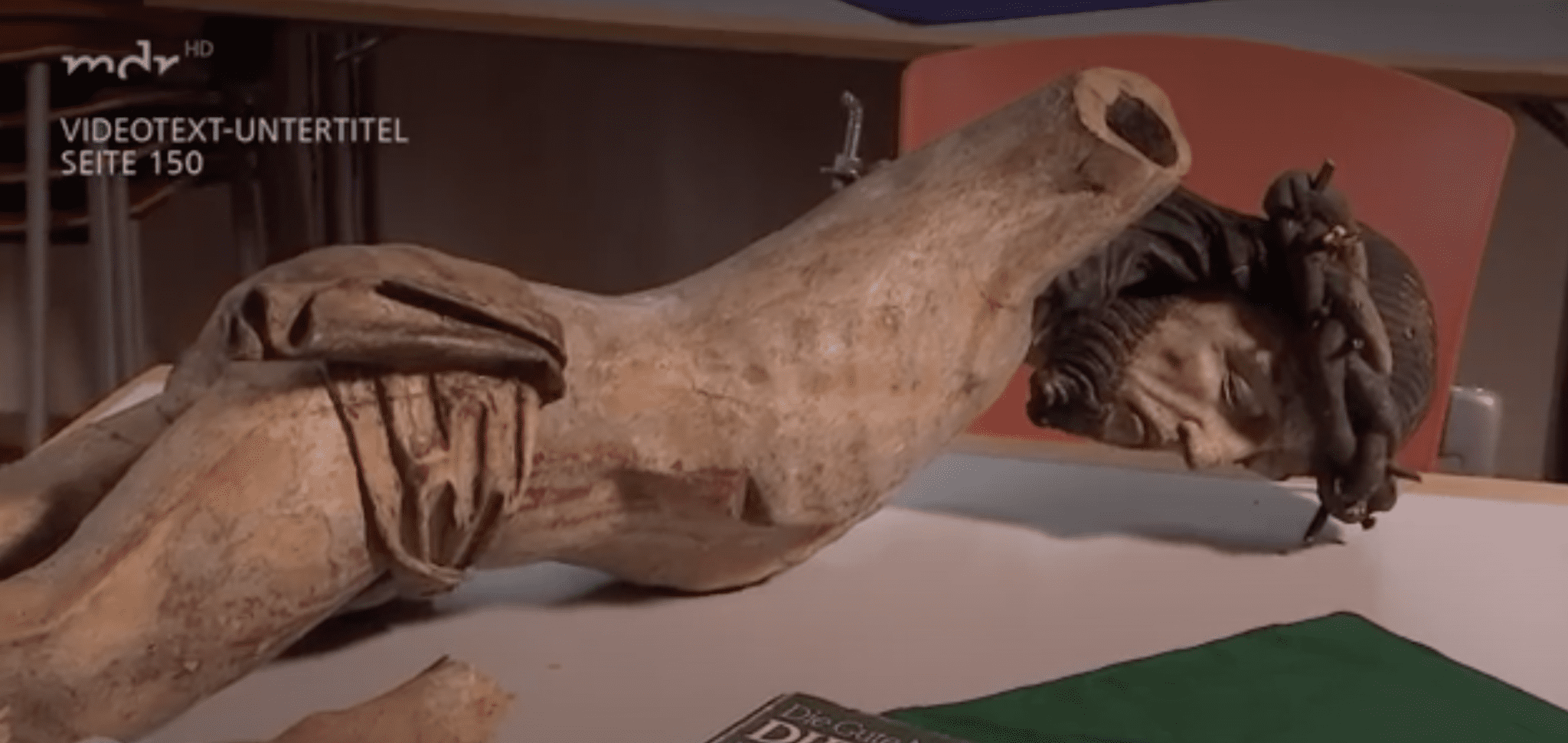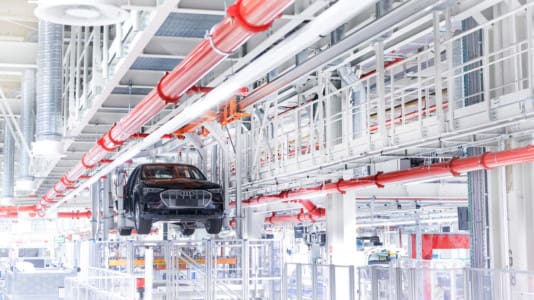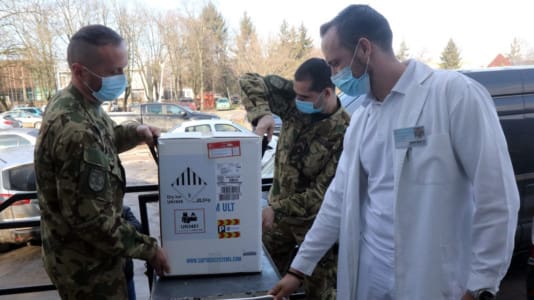On Oct. 28, a 25 years old Afghan, who came to Germany in the autumn of 2015 during the height of the migrant invasion as a refugee, desecrated a local church building in the Thuringian town of Nordhausen. The man entered the Evangelical (Lutheran) St. Maria Frauenberg Church and began grabbing furniture, pews, crucifixes and ornaments, dragging them out in front of the entrance, and piling them up on the street.
He did not spare the centuries-old crucifix either that was taken down by local churchgoers during World War II to protect it from allied bombing raids. During the incident, the Afghan smashed the wooden statue of Christ attached to the cross, ripping off its hands and legs.
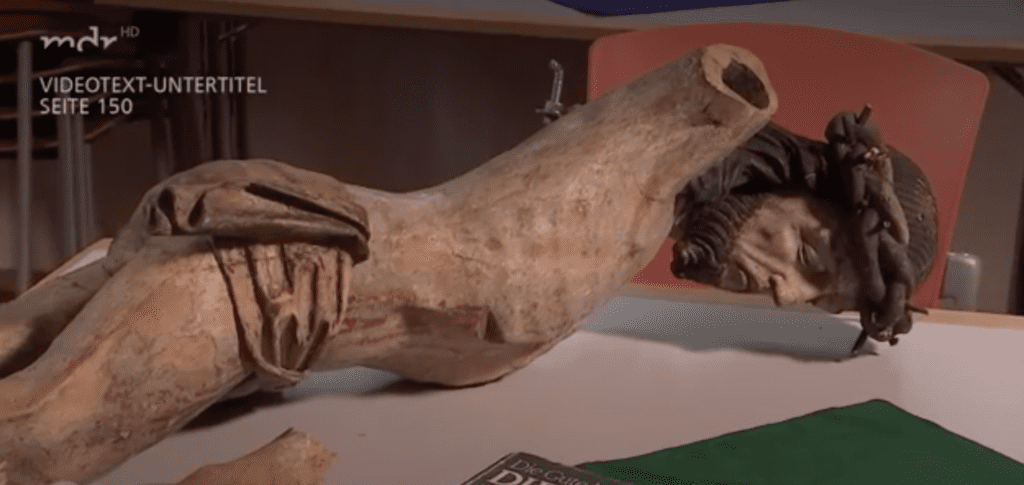
It is an irony that the congregation belongs to the German Lutheran Church (EKD) that is one of the largest financial donors to the migrant smuggling boats in the Mediterranean, such as the Sea Watch NGO, which are responsible for bringing tens of thousands of economic migrants to European shores. One of the lead clerics within the EKD, Thies Gundlach, remarked in the past that the work of migrant rescue boats presents a missionary opportunity for the church. There is little evidence of an influx of new churchgoers from primarily Muslim migrants arriving in Germany. Instead, the German evangelicals appear to be instrumental in destroying their own places of worship and religion.
This is the impression Pastor Klemens Müller may have had as he looked out of his window on the day of the incident, and saw the Afghan destroying his church. When he rushed down to confront him, the Afghan calmly explained to the priest that it is necessary for him to empty the church of Christian symbols because of “religious differences.” He proceeded to describe the Christian faith as fundamentally wrong, and that the claim that Jesus Christ is the Son of God is a mistake, which is why he felt that it was his duty to empty the church building of any Christian symbols and furniture.
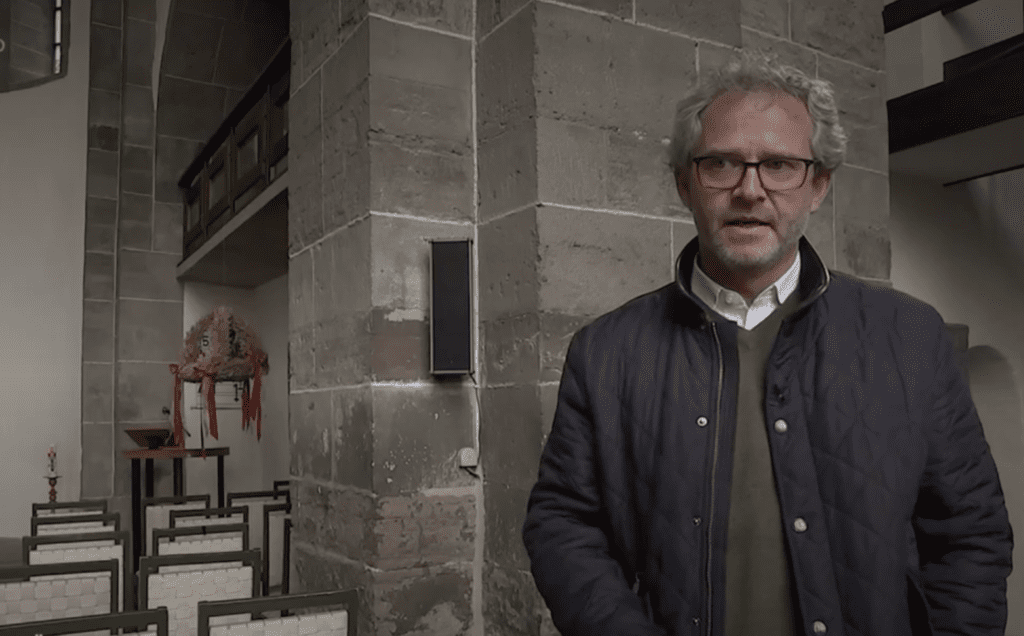
The pastor asked him what he would do if he went to Afghanistan and cleared out a mosque in the same manner. The pastor said that the man refused to consider it on those terms. Müller said there was no real dialogue the man was willing to listen to.
After the Afghan stopped speaking with the pastor, who was barely a few weeks into his job, the migrant reportedly calmly walked back into the church and finished the acts of destruction that he started earlier.
It is unclear why the pastor did not call the police immediately or tried to stop the man from desecrating his congregation’s place of worship, but given the cultural and political climate in Germany, there is a fair chance the pastor was concerned about whether contacting the police would direct scrutiny back on him for being culturally or racially insensitive.
Only after the destruction was complete did the church secretary finally dare to call the police, who promptly arrived at the scene, took the intruder’s personal details, and then let him go. A complaint was filed, but as the man is living in Germany under refugee status, it is unlikely he has the money to pay for the substantial damage he caused. There is also no chance he will be deported back to Afghanistan since, due to the Taliban takeover in the Central Asian country, all deportation flights have been stopped. The perpetrator will most probably get away with the act of vandalism and a blatant attack on the freedom of religion with impunity.
Any German vandalizing a mosque could expect to be charged with hate-crimes, yet the German media only spoke of “religious differences” in explaining the possible motives behind the crime. The Nordhausen local paper wrote about damage to the valuable crucifix during “transport works.” The paper also claimed that it cannot be determined whether the figure of Christ on the cross was smashed intentionally or by accident. Although the difference between the two cases is rather artificial, as the act of knocking a statue off a wall and forcibly dragging it out of a building, then throwing it on a pile of rubbish contains very few instances in which it could be labeled an “accident.”
Despite the man clearly admitting the attack was religiously motivated, the police appear to claim at the same time that it was not the case.
“What I see at least is that is not a religiously-motivated attack, although the suspect argued it was in this direction, and he also has an Islamic belief,” said police spokesperson Patrick Martin. The police appear to be acknowledging reality and denying it all in one sentence — highly emblematic of the political and social perception around sensitive issues such as Islam and immigration in modern Germany.
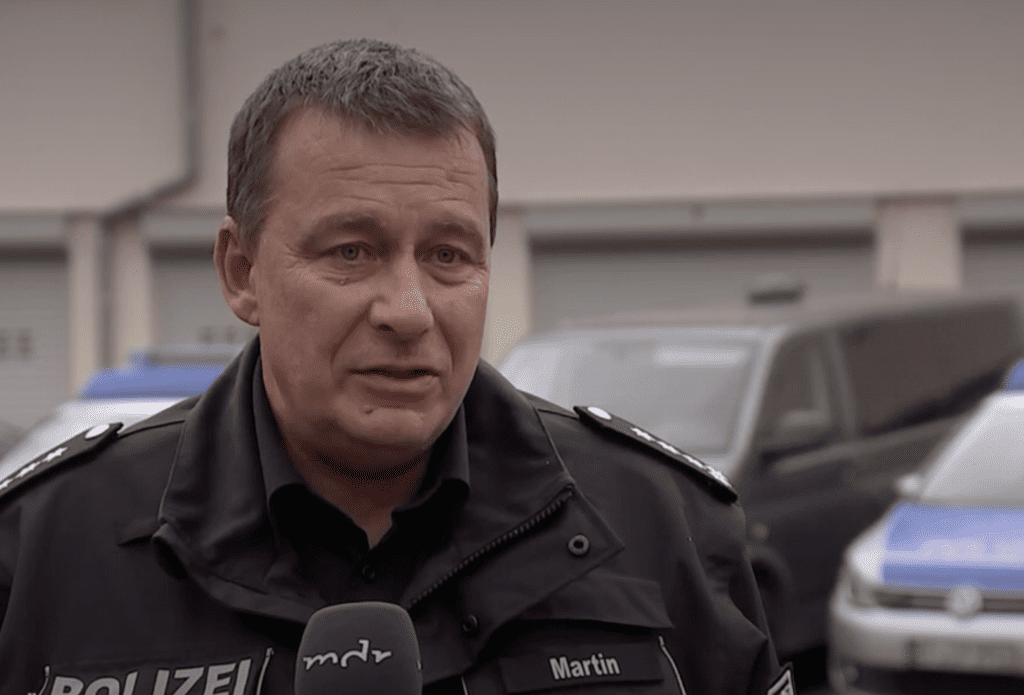
The St. Maria Frauenberg Church itself operates an “open church” policy with prolonged opening times and free entry to the church building for anyone. It is unclear if that policy may be revisited in the future. For the local press in Nordhausen, the moral of the story seems to be only that “the work on tolerance among world religions seems to be urgently required.”
However, the Nordhausen district administrator Matthias Jendricke (SPD) was not so conciliatory in his assessment of the attack on the church. In a statement he said that “I condemn this trespassing with property damage in the strongest possible terms. Such behavior is the reason why I made a plea in the summer not to accept any further refugees from Afghanistan. Most of them reject our culture. It is a mistake to think that they would want to integrate well, as yesterday’s incident proves once again. In addition, we currently have no way of deporting people who have committed criminal offenses to their home country, because there are no longer any flight connections to Afghanistan. We don’t need a new admission contingent for Thuringia, and we won’t solve Afghanistan’s problems if we bring unlimited numbers of people to us.”
“What I see at least is that is not a religiously-motivated attack, although the suspect argued it was in this direction and he also has an Islamic belief,” said police spokesperson Patrick Martin.


